The recently launched Get Prepared Canvas site emerged from a collaboration between a group of student co-designers from a number of faculties across the University and Educational Innovation. They reflect a diverse and overlapping range of underrepresented student cohorts at the university, including first-in-family, low-socioeconomic, Indigenous, and regional students. In this article, three students from the Get Prepared team discuss coming to university, the challenges students can face on this journey, and the contribution Get Prepared makes in this space.
This article was contributed by student members of the Get Prepared team (Michelle Cheung, Florence Borbe, Mahmoud Al-Rifai).
The challenges of coming to university – Florence Borbe (4th year Education/Arts)
University can be a daunting place, like being a little fish in a big pond. Whether you come straight out of high school or from vocational education, you’ll face challenges, such as:

Learning new university ‘lingo’
There are a myriad of new terms used at university (that we actually have a glossary section of the University website speaks for itself!). Students may wonder what (and when) a ‘census date’ is, what a ‘WAM’ and ‘SAM’ represents on their transcript, and why they may have to take an ‘OLE’ or two. Clarifying important terms relevant to your unit of study and referring students to the glossary will help them to demystify university terms and procedures.
Navigating a campus the size of a suburb
I’ve been at this university for 5 years and I still get lost! I’m sure you do too. Suggesting apps such as Lost On Campus and emailing directions to hard-to-find rooms before your first class will ensure students don’t arrive late or attend the wrong class!
Meeting new academic expectations
Every student wants to perform well. By taking the time to outline the essentials of your unit (e.g. a specific referencing style) and providing exemplar assessments of varying grades, you give your students the chance to understand what you expect of them. Emphasising the importance of time-management and staying organised is also key to academic success.
Balancing the competing demands of life, work and study
Most students work casual and part-time jobs, whilst some have the added responsibility of caring for a relative. Being empathetic and flexible in responding to their needs, such as providing a 1 or 2 day simple extension can go a long way in helping them manage their commitments and mental wellbeing.
I felt incompetent, a burden on others… especially as a commencing student of an esteemed institution such as the University of Sydney.
In particular, students who are first-in-family face these challenges without a direct family source to explain things like how to enrol, making the transition to university an overwhelming experience. Personally, as the first in my family to attend university in Australia, filling out HECS forms, selecting units in Sydney Student, and navigating the learning management system (then Blackboard, now Canvas) during the initial stages of my enrolment were persistent challenges. I would have been lost without the help of friends, Australian-university-educated cousins, and the busy ICT support hotline.
I felt incompetent, a burden on others, as I assumed I was expected to navigate the enrolment process with ease, especially as a commencing student of an esteemed institution such as the University of Sydney.
What is usually considered common knowledge amongst university staff and students can be completely foreign to some students, leaving them feeling confused, overwhelmed and isolated. These students may be apprehensive about seeking assistance from their tutors, lecturers, and peers due to fear of judgement. You can be their guiding light by providing opportunities for students to ask questions (after face-to-face classes, in Zoom drop-ins, by email, or on Canvas discussion boards), and even sharing your own experiences of transitioning into university. These strategies, among others, will ensure these students feel understood, included and supported in their own transition.
Tips for teachers – Michelle Cheung (2nd year Science/Education)
The following practical suggestions will help all teachers to assist students from underrepresented backgrounds in their learning.
Provide a safe, supportive and inclusive learning environment for your students
- Acknowledge that every student will have a different ‘virtual school bag.’ They may not all have stable access to the internet, the latest MacBook, or a learning environment they are comfortable sharing with the class.
- Welcome and celebrate the diversity in your classroom. You could learn your students’ names – some students can go all the way through university without a single person learning their name!
- Be attentive of the language you use. Make sure it’s inclusive and doesn’t marginalise.
Be open-minded, understanding and accepting
- The level playing field is not a level playing field at all. Not everyone has the same access to the same kind of education, knowledge, and social and cultural capital.
- The participation and attendance of low-SES students can be inhibited by their lack of engagement with the subject matter. To accommodate this, curate learning activities that activate and build on your students’ prior experiences, values, and strengths.
Avoid deficit thinking
- Uphold the mindset that each and every student is capable of achieving anything.
- Avoid assessing or measuring student achievements based on assumptions and preconceived misconceptions about certain groups.
Your contributions to the lives of all students go a long way. Thank you for everything you’ve done so far and we can’t wait to see what you’ve got in store for the future to support students in their journeys to, through and beyond university.
How does ‘Get Prepared’ help tackle the challenges of transition to university? – Mahmoud Al Rifai (2nd year Commerce/Law)
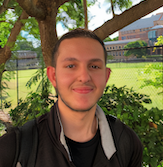
Get Prepared eases student transition by shining a light on what it’s like to be at university and encourages students and their families and supporters to see themselves as a vital part of the learning process. The site features two student-facing modules and one parent/family/carer/community-facing module, which guide site users with key information, tailored advice, a range of interactive exercises, along with engaging videos featuring current and past university students.
Module 1,‘I can do this!’ is designed to motivate students to make the leap to university. By completing a range of resources and activities, students are able to connect with the many people and places that make up a university, and, most of all, see themselves as one of the most important parts of it. They will listen to the experiences of past and current students coming to university and then have the chance to document their own journey for others to view in order to value themselves as key contributors to the University and its history. The ‘I can do this!’ module also builds on student experiences and strengths in values affirmation exercises to generate a sense of belonging, a value that has been shown to improve student success at university.
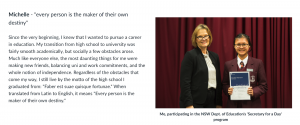
I had no idea what to expect in my first year of university given I was the first in my immediate family to attend an Australian university… ‘I can do this!’ aims to redress such feelings by ensuring that students are made aware of the university’s language and processes, as well as feel a sense of belonging and inspiration.
University study marks a radical change from high school study. I struggled to make sense of the critical thinking required to excel at university.
Module 2, ‘How to thrive at the University of Sydney’, provides some specific advice about the University of Sydney, its academic culture, and its learning spaces. Ultimately, it is designed to empower students to make the University their own. It guides students to:
- Navigate their enrolment, studies, and degree
- Find their way around the university’s places and spaces
- Navigate online learning
- Participate effectively in class discussions and group work
- Manage study time and tackle procrastination
- Connect with peers (and be more confident doing it)
- Contact tutors and lecturers
- Access university support services
These solutions will be particularly useful for high school and first-year university students who experienced a lack of support and connection while learning online during the COVID-19 health crisis. It is crucial that incoming students are made aware of the ways the University can support them and how they can connect with their peers and teachers.
University study marks a radical change from high school study. I struggled to make sense of the critical thinking required to excel at university. ‘How to thrive at the University of Sydney’ places emphasis on this skill and other habits to ensure students are able to best transition from high school to university.
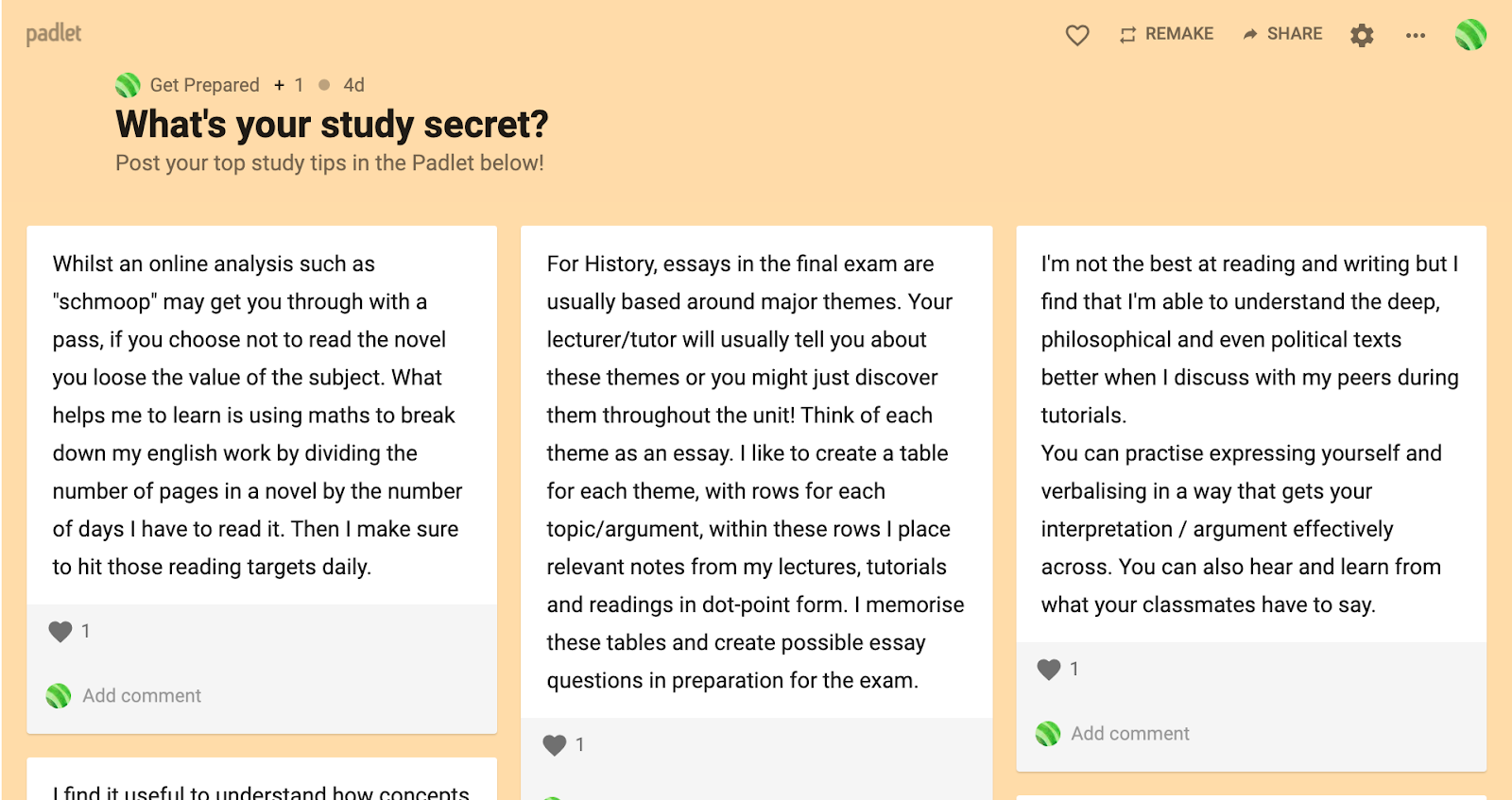
Regardless of who students are and where they’ve come from, the support of family and friends can make all the difference to their successful transition to, through and beyond university. This is why module 3, ‘Parents and family: How can I help?’, is such an important part of Get Prepared. It invites anyone close to a university student to learn more about university spaces, life and expectations to inform how and when they can offer support. Key supporters of first-in-family students, in particular, may come across information and approaches they may have never considered before and be better equipped to support ‘their student’.
To have a support team backing you every step of the way is invaluable…
The support of my parents was paramount when I began university. Without them, my experience would have been much harder. University is challenging and it will be overwhelming to tackle it on your own. To have a support team backing you every step of the way is invaluable in persevering and overcoming the obstacles university life inevitably throws at you.
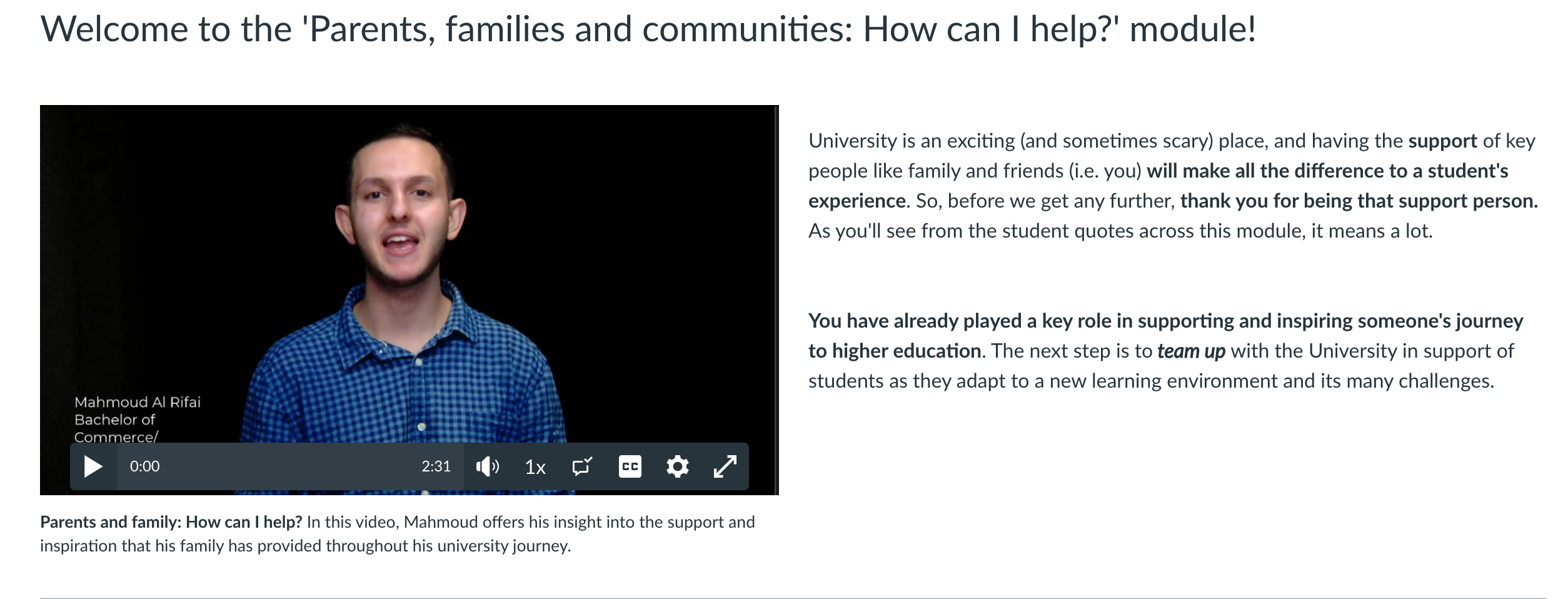
Get Prepared represents a significant step towards the University’s strategic aims to develop and maintain a safe, supportive and inclusive environment for underrepresented students. We hope that this resource will be something students, parents and teachers all find valuable to support student journeys to, through and beyond university.
Want to learn more?
For more information on supporting students in transition to university:
- Find out more about the Get Prepared site or see it for yourself.
- Check out the Teaching Resources Hub module on First-Year Experience
- Come along to one of the Modular Professional Learning Framework (MPLF) sessions (available to all University of Sydney staff):
We would also be grateful if you could support the Get Prepared site by circulating it amongst your teams and networks inside and beyond the university, especially if they are working with students transitioning to university, first-year students cohorts, first-year unit coordinators, or students from equity cohorts.


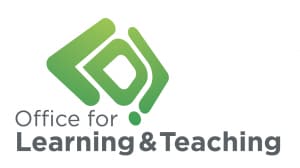



1 Comment